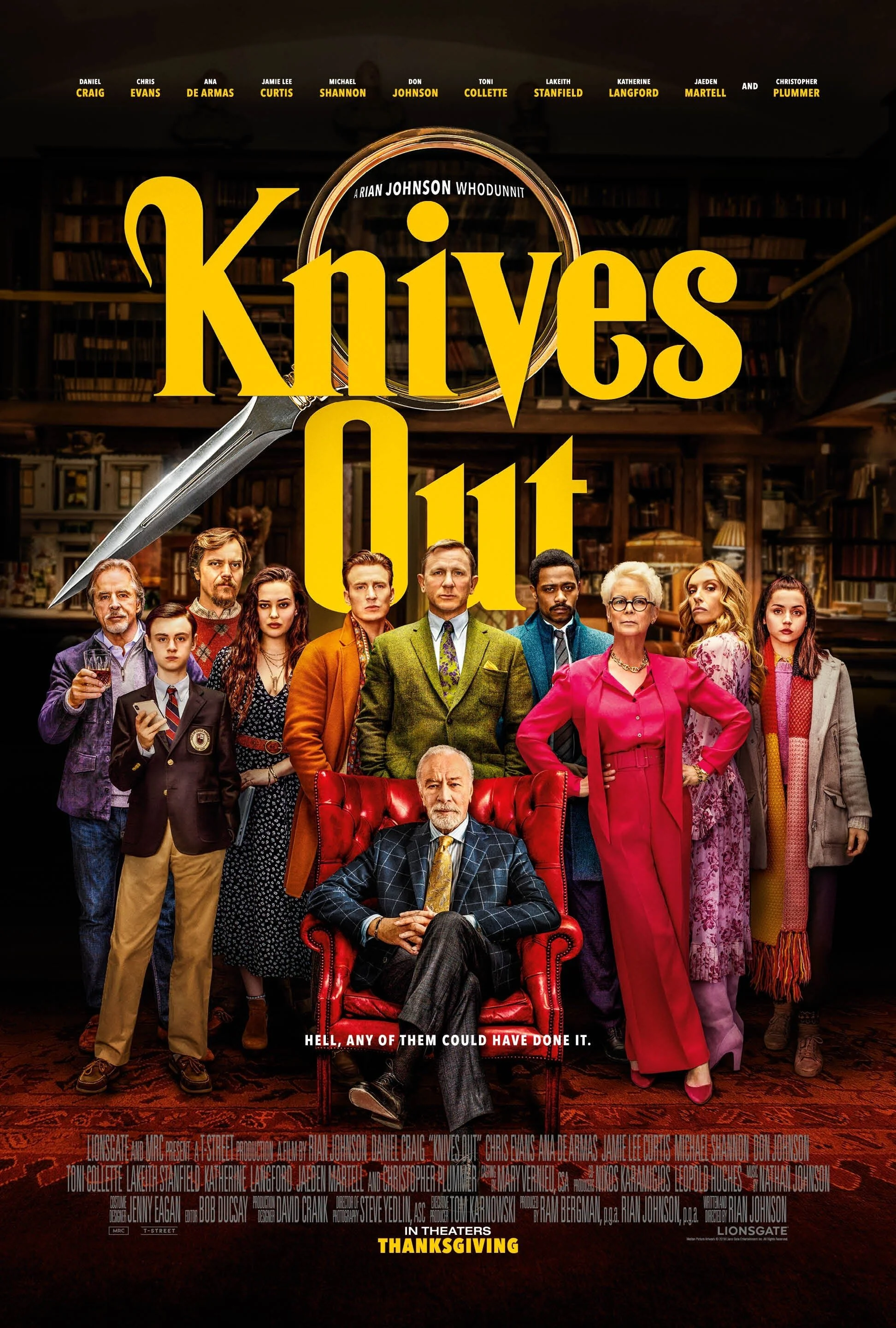Wicked Little Letters
Wicked Little Letters is a funny film with a lot of typical British wit that also manages to have a heart and something to say.
Full Disclosure: Olivia Colman is everywhere lately, it seems, from her Oscar-attention getting roles in films like The Favourite and The Father to her turn as the middle-aged Queen Elizabeth in The Crown to showing up in mainstream fare like Wonka or Marvel’s Secret Invasion, and even a guest spot on The Bear. I guess it’s no surprise then, that she would turn up in a movie I’d never heard about, at least until I saw a trailer for it before another movie a week ago. Colman is always good, and I’m a sucker for off-beat British humour so I thought this would be worth checking out.
Review
Let me start off by saying this right away: if you’re offended by foul fucking language, this isn’t the movie for you. Few people can turn swearing into an art form quite like the Brits, and that innate talent is put to full hilarious effect in this film, often in un relenting fashion.
The film is based on a true story from around a hundred years ago that was apparently discovered by the filmmakers written up in a scientific journal about human behaviour. The story concerns Edith Swan (Colman), a prim and proper English woman who lives with her parents, and begins receiving letters filled with invective and vile insults directed her way. Her father, Edward (Timothy Spall) is convinced that the letters are coming from their next-door neighbour, Rose Gooding (Jessie Buckley).
Rose is outwardly the exact opposite of Edith. She drinks, is foul-mouthed, and has no problem telling people what she thinks of them. She also lives with her daughter and a musician that isn’t her husband, something that’s obviously seen as a bit scandalous for her time. Edith’s overbearing and domineering father browbeats his daughter into filing a police complaint against Rose, who is soon arrested.
The two senior police constables are only too eager to believe that the disruptive and rude Rose is the culprit, but Rose soon gains an ally who believes she’s innocent – “Woman Police Officer” Moss (Anjana Vasan). She insists on her title for much of the movie, having been told that is the proper way she should be addressed until Rose finally convinces her that the fact that she’s a woman is obvious, and that she should just call herself “Police Officer”.
Olivia Colman, seen her giving an impression of the kind of person who would be offended by this movie and not enjoy it at all.
The themes in this movie aren’t particularly subtle, but they’re very well presented. It becomes very clear that the overall villain in this story isn’t any one person in particular (although Spall’s dictatorial father comes close) but patriarchal oppression as a whole. It’s also a film about how the thin veneer of respectability, that everyone to some degree tries to present, can often hide the rot beneath.
Edith and Rose’s two families are perfect examples of this. While outwardly Edith’s is the picture of civility and morality it’s a cold, tense and depressing household. On the other hand, the scandalous household of Rose is full of joy and fun and love.
Jessie Buckley is the real star of this movie. I’ve seen her in a few things before but never took much notice, but she absolutely shines in this film. She imbues her character with so much life and charm that you’re drawn in immediately whenever she graces the screen. I’ll definitely be looking forward to seeing more of Buckley in any future projects.
Spoilers Ahead
Jessie Buckley as Rose, the real star of this film. Look at how relaxed and self-assured she seems, even while defending herself in court!
The big surprise takes place about halfway through the movie, when Rose, Moss, and a few of the other townswomen from the local women’s card games become convinced that the actual author of the letters is Edith herself. When Rose gets out on bail, Edith begins sending letters, not just to herself, but to almost everyone in town in an effort to incriminate Rose.
The rest of the film becomes a fun sleuthing story as Moss and the others try to find proof of Edith’s guilt and convince the stubborn male constables that they have it all wrong. The case, meanwhile, has gone national, and Edith is basking in the glow of all of the attention and praise from the media that she’s never received at home.
In the end, however, it becomes clear that Edith just can’t stop herself from writing the filthy letters. After living a life of repression under the domestic regime of her father her whole life, the expression of all her pent-up anger and frustration comes out as long sentences of often non-sensical cursing. It’s an almost subconscious explosion of her yearning desire for independence.
When the case is finally uncovered, Edith’s emotional restraints are removed, and she’s able to once and for all tell her father what she thinks to his face. It’s an emotional release that leaves her laughing hysterically as she’s taken away to prison. Even Rose understands, and the two don’t part as enemies, but as women who understand the societal pressures they’ve both been living under.
Only one of these constables actually knows what they’re doing. Guess which one.
5 Quick Hits
The music for this movie was composed by Isobel Waller-Bridge. Yes, that would be Phoebe Waller-Bridge’s sister. Talk about a talented family!
Timothy Spall has an amazing ability, with his eyes bulging out of his head, to make it seem as though he’s on the verge of being totally overwhelmed by whatever emotion he’s feeling at the time - fear, nervousness, or in the case of this film indignant outrage – but without ever going over the edge. It’s an incredible acting quality.
Throughout the movie, Rose tries to prevent her daughter from playing the guitar, because she’s been told by a social welfare worker that “nice girls don’t play the guitar”. It’s her way of trying to protect her daughter from the upbringing that she had and give her a better life. However, after finally being set free at the end of the story, Rose gives her daughter her own guitar. It’s a great moment, and a recognition that even Rose, the character who seemed most free of societal constraints, had bought in to some degree to the need to look good to the outside world.
I love that this story, based on real events, was discovered in some sort of medical journal. It seems that there is lots of fodder for smaller movies with a deeper message, like this one, to be found in true stories of bizarre behaviour. I’ll be trying to find some behavioural science journals for story ideas in the future.
Hugh Skinner, who plays one of the constables (and was also recently seen as Prince Radovid in The Witcher) can play dumb really well. It seems like it should be something that’s easy to do, but to do it well takes skill, and he’s got it.








